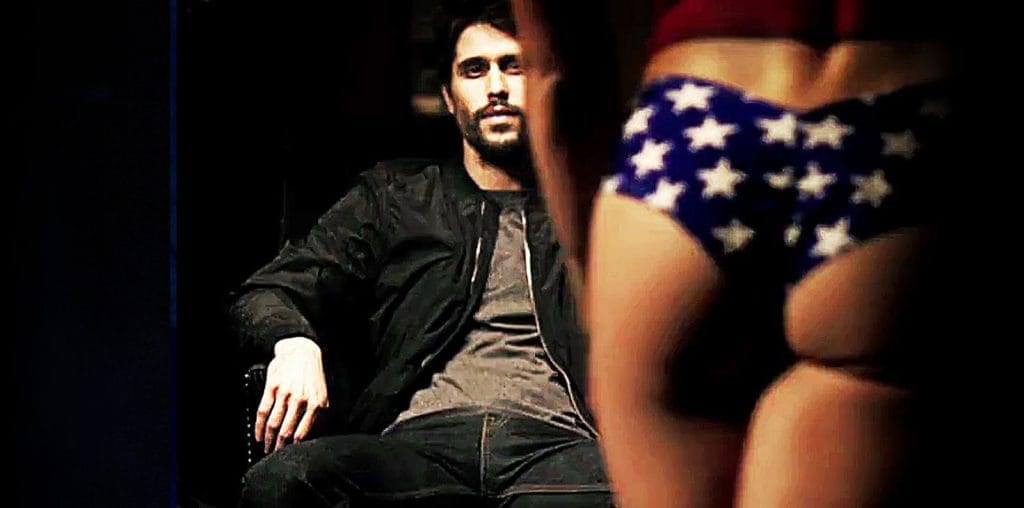
Veit Helmer’s “Tuvalu” is cinematic proof that imitation may be the sincerest form flattery, but it is also the most disappointing form of filmmaking. Mixing equal parts David Lynch, Buster Keaton and Ernie Kovacs with a pinch of “The Cabinet of Dr. Caligari” thrown in, “Tuvalu” is a wild and weird mess which wears out its welcome fairly quickly but which, at the very least, deserves points for trying to be different.
Set in a crumbling public bath in a dilapidated building, “Tuvalu” focuses on poor Anton (Denis Levant), the craggy-faced and much-bullied son of the blind old tyrant who runs the establishment. The bath has virtually no business any more, yet Anton and the fat lady who doubles as cashier and custodian run a variety of sound effects (including a tape machine complete with splashing and squeals) to fool Anton’s father into believing that the bath is a success. However, Anton’s evil older brother knows the truth and is constantly angling to have the bath turned down in favor of constructing a modern high-rise.
Love comes into Anton’s life with Eva (Chulpan Hamatova), a comely nymph who finds herself falling in love with Anton even though her father is killed at the bath when a piece of ceiling fatally lands on his head. However, Eva’s love for Anton is put to the test when she grapples with him over a spark plug that is important to pump used at the bath. Eva wants the spark plug for her ferry boat, which could be the vehicle to take her and Anton away from their strange little lives.
To its credit, “Tuvalu” is an unusual technical achievement on many levels. The film was shot in black-and-white and tinted in sepia and blue, providing an old-time look rarely seen in contemporary cinema. Dialogue is kept to a bare minimum (mostly with the characters calling out each others’ names) and a variety of tilted angles and film speed tricks provides for a compelling visual style. Several throwaway gags which call blatant attention to the artifice of the medium (painted backgrounds, a seagull puppet, an ocean storm which is obviously created by a garden hose) add to the cheerfulness.
Yet “Tuvalu” never quite clicks, perhaps owing to its over-reliance on a style and deficit of substance. The story itself is too tame and silly to serve as the foundation of a comedy classic and the central character of Anton is, for some reason, strangely unlikeable and more than a little creepy (French actor Denis Levant tries to keep a Keatonesque stoneface during the film, but he lacks Buster’s unvanquished soul and peerless timing). Filmmaker Helmer is clearly paying tribute to so many different styles that he never creates one of his own, thus creating a film which plays as an unreasonable facsimile of other works of organic surrealism and slapstick.
In case you are wondering about the title, you are not alone. The South Pacific island republic of Tuvalu, which is best known as being the source of the “.tv” Internet suffix, is nowhere to be seen in the film. Like much of the humor in this film, it is a joke that is intriguing but ultimately valueless.

